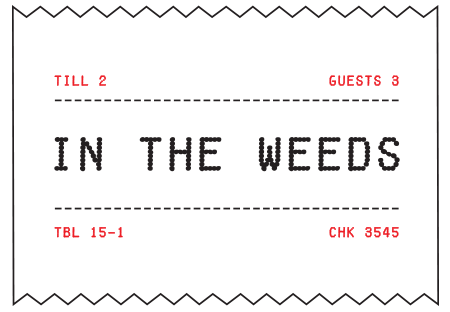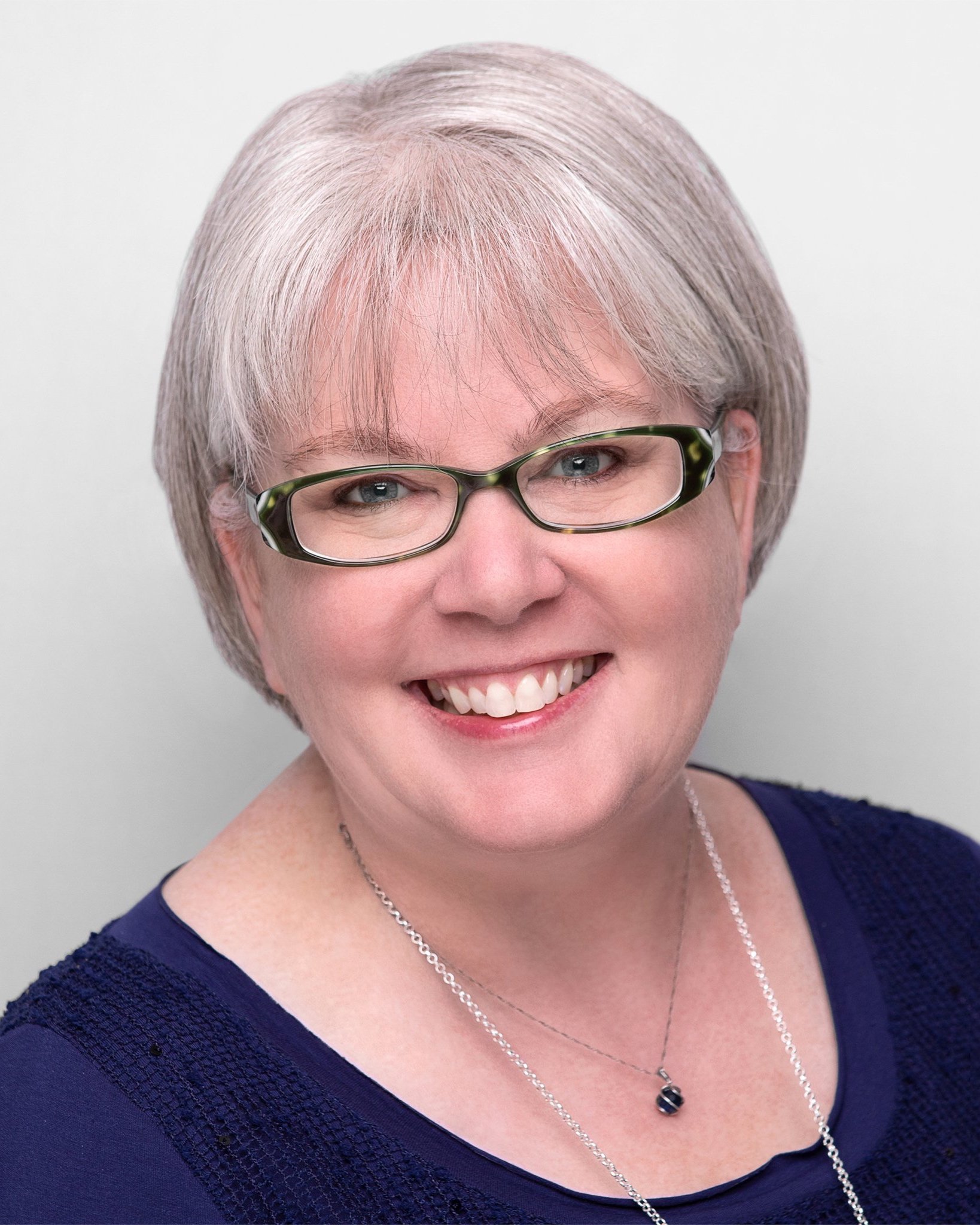Kim’s Kitchen ft. Jay Sparrow
In the “Kim’s Kitchen” series, ITW Board Member and Tacit Knowledge founder Kim Silverthorn interviews a member of the Edmonton hospitality community - eager to learn more about their own journey with mental wellness in the workplace.
In this feature, Kim sat down with fellow board member and co-founder of Sea Change Brewing Co, Shiddy’s Distilling, FlatBoy Burger, and Plus One Events, Jay Sparrow.
Kim
Hi Jay – Welcome to Kim’s Kitchen! Can you tell us a little bit about who you are and how you got into the hospitality industry.
Jay
Sure! My name is Jay Sparrow. I started in hospitality when I was 14 years old, as a dishwasher at the Belvedere Golf course and I quickly moved up the ranks. I was very excited about the environment because my mentor (A.J. Metums) was the chef running that kitchen and he's a super talented and creative guy. He kind of took me under his wing. I just felt a real and immediate camaraderie. I didn’t feel the pull to the front of house until much later in life. But in the back, it felt like we were just a bunch of pirates. LOL
I didn’t enjoy school. I worked five days a week through junior high and high school. Just after I graduated high school at 17 years old, I was running a kitchen on Whyte Ave. By the time I was 19, I was the Corporate Chef for a hospitality company which had about 7 or 8 different restaurants. By 21, I was an operations manager for that company. And then at 22, I basically retired from the hospitality industry and started a long music career.
When I was tired of touring and making music full time in 2017, myself and a group of friends started a company called Sea Change, which is a brewery here in Alberta and beyond. We have two taprooms and we are opening our third in May. We also have a distillery called Shiddy’s, a smash burger company called Flatboy Burger (with two locations), and an events company called Plus One Events.
Kim
Holy cow! I love your music. I wasn’t aware of your expansion back into the hospitality industry in such a big way and over so many years. Have you seen differences with how mental health issues are addressed or supported between those two periods of time in the industry?
Jay
Absolutely. I think it's a remarkably different environment now for a few noticeable reasons. In the 90’s, the minimum wage was 4 or 5 dollars an hour. There was no one keeping track of how much you worked so a lot of those guys were working 60-hour weeks, every week. And because there was no one really keeping track and employees didn't want to upset things, they wouldn't even say, “Hey, I'm working too much” because they wanted to make money. They wouldn't ask for overtime pay because that could mean having their hours cut. So, everyone would just quietly work six days a week, 10 hours a day, just to get ahead. It’s often 40-45 degrees on the line where they're cooking in the summer. It"s fast, intense, and high-pressure work. It just wasn't spoken about back then. People weren't cognizant of checking up about these kinds of issues. That management style just would not get through the market now.
Kim
That’s a good thing, probably. Overall, there's so many good reasons why governance is put into place to try and protect everybody, including the heads of those hospitality pockets.
Jay
Yes. A cook got up, had a quick bite to eat, and went to work for a full day. At the end of the day, they were exhausted. So, they would end up just having a few drinks after their shift, then go home to bed and do the same thing over again, the next day. It's not a life, you know. It's too much. So, the work life balance has changed over the years. And for the better.
Another thing that changed between from when I started till now is the respect given. People like Anthony Bourdain, who rose during the advent of the celebrity chef culture (which didn't exist when I started), changed how you can treat the people in the kitchens and in the service staff. He helped make the job cool - it became a true career that you could study and be celebrated rather than just being the people that get hidden away in culture.
Kim
It was starting to be seen as elite and worthy of respect.
Jay
People in hospitality became artists. You could watch Jimmy Kimmel and get excited that Anthony Bourdain is going to be on that show. You had a North Star to look at as a cook. As a 15-year-old cook in a kitchen when you're dropping fries and sweating and trying to get through your day, you thought, “Okay, maybe there is an actual career at the end of this for me that I can be proud of”.
Kim
What are some of the challenges that you have faced that made it difficult for you to find your balance?
Jay
For me, it's pretty easy. I’ve carved out a week of tasks for myself that's very manageable. I have an amazing team around me that keeps our companies on the right path. One of the things that we do to keep our focus on the health of the company is that we just try to make sure that it's properly managed. It's the right amount of management for the scale. Before I owned companies, I would work for companies where the job description was never really defined for me. I was just “Head of Operations” and there was never a breakdown of what that meant. So, it really meant just everything - run the company. Whereas now, we've really siloed all of the management roles, so each person knows exactly their corner of the business to focus on. The risk of being overwhelmed has diminished. It's not that it doesn't happen because it's a constantly evolving business, but that was one of the things we decided right out of the gate - it was the right amount of management for the scale. So, as we've grown, we keep creating new positions that didn't exist a year prior, because that's a necessity at this point. They can get more depth in the role rather than just feeling to spread out and chaotic. We're always trying to avoid chaos. When I was younger, I worked in really busy places and I could get to a point where I could just see it in another person's eyes when they were in the weeds. They were just lost in the overwhelming moment of that day. So now we just try to make sure to avoid those moments for our staff whenever possible. We don't always win, but I think we win comparatively to the past. It's a much more positive environment for that now.
Kim
Can you share a couple of examples of some of the unique management roles that you have created?
Jay
Well, I can use our marketing department as an example. It started out with just one (very talented) guy named Pete Nguyen. He's one of our co-founders and a partner in the company, and he did everything marketing related, and he was super overwhelmed. So, we added an assistant under him and then we added another assistant under that person. This new team led to the creation of a whole new position called the Trade Marketing Manager to oversee. We had three really great creatives, but they had to go to all of our management meetings and interact with the public. We get a ton of requests every day from charities, sports teams, other businesses etc. looking to collaborate with us. These guys were the ones that had to be the front line for all of that. So, we thought, “Okay, we need a role that's going to be the bridge between the actual artistic component of the company and the PR.” So, we created the Trade Marketing Role. He's the liaison between the world and the artists. So that's just a microcosm of the whole company. At all levels of the company, we find that we get the most traction in the world and most success when all of us are having fun and excited. Whenever we feel like we're grinding gears and we're just drudging through the cement, we know we're on the wrong path. Not to say that all work has to be joyous. But we've just learned that the determiner is excitement from someone willing to champion. That’s the baseline threshold for our involvement. All of our initiatives need champions.
Kim
I love that because it reminds me of something you said earlier. You talked about being in the weeds and recognizing what gets you there. It’s about that need for joy. What else sometimes leads people get mired down in things that are going to drain them and eventually hurt their mental wellness?
Jay
We have 100 employees, and we want everyone have a voice. Every idea is valid, and every idea gets a shot. It doesn't matter if it comes from a dishwasher at one of our taprooms or the head of operations for the whole company. You let the best idea win. But, when someone, a new employee for example, doesn’t realize they can tell us if they think our idea is bad, or offer a better idea, that can trip us up. And because we have new employees all the time, we're always trying to make sure that everyone knows that they can contribute creatively to whatever problem is occurring in the company.
Kim
How do you make people feel safe enough and comfortable enough to have that voice?
Jay
Well, before we started Sea Change, I owned a tech investment fund. I learned a lot in those five years. Tech moves so fast because the best idea wins. It doesn't matter if you'e a 15-year-old who just learned how to code or you're Mark Zuckerberg. They just want to make sure that the coolest and most interesting idea gets through and gets built. So, while working in tech I found a tool called Slack. When we started Sea Change, I was insistent that we use it. I'd never seen it in hospitality, but I saw the value of it because it's basically a private social media site for your own business. The way we use ours is basically as a central virtual office for the whole company. Everyone contributes issues or problems and together we all contribute solutions in real time. We also share our wins of the day and any necessary news that staff will need to know.
Kim
Wow. So, the transparency is huge. That's a big way to walk your walk! I love that you referenced it initially as “a bunch of wins for the day”. People can enjoy that together, celebrate together, be proud together. You also said that it's also part of the way you can express struggles.
Jay
Totally. Anyone under 30 has grown up with their phone. And to them, the new communication style for friendship happens in text groups. I just wanted to make sure we had that company-wide so we could encourage the ability to contribute an idea. And this is how we do it. Some of that is through our Wins of the Week or Best-Practices channel.
Kim
What an amazing positive sense. You've found a way to magnify the positives in somebody's life - not just recognize them, but actually magnify the ripple effect back to that individual. Can you expand on Wins of the Week?
Jay
Yeah! We have a sales meeting on Friday mornings. We will go through all the sales wins of the week during that call which kicks off the meeting. So, it’s not just in the general chats amongst everybody. There is also a specific intentional effort to try and highlight some wins and successes in this smaller group. We try not to linger on the negativity. But we understand that it's going to happen occasionally. We just try to have a culture of kindness from the top to the bottom, and then that trickles over to how the team interacts with our customers and vendors and all of the accounts that we deal with, too. We want to make sure there is always a level of respect and camaraderie and kindness in all our dealings. For example, I don’t think I've seen anyone in our company yell at another employee really. It would be jarring if it did happen.
Kim
When you make kindness, compassion, and respect your pillars then you can't go wrong. That's a really healthy environment to build from.
Jay
Yeah, that culture of the angry chef - the Gordon Ramsay era (as unbelievably talented as he is!) - that's gone away and I think that's good. I don't think it's a necessary component of success to have that sort of energy towards people. And we've proven it - lots of companies and leaders prove it all the time - that you don't have to operate that way. I remember when I was younger, and I saw that kind of angry behaviour all the time. I always thought “this is a relic. It is a thing that's not going to move with us”. I know that is still out there in the world. It's just not in our company.
Kim
What is next thing you’d like to see in the industry related specifically to mental wellness?
Jay
I'd love to see a more highlighted component of employee benefit programs that were focused on nutrition and exercise. Prior to age 35, I was just kind of keeping the pedal pinned down. I would eat whatever was around, sleep a couple hours, drink too much and it held me back. I would have achieved more and I would have grown faster if I had learned these things earlier. So, if I was 16 and onboarding for a job and they asked, “How are you sleeping? How’s your diet? What kind of exercise are you doing?” it would have helped. If they had materials or tools, they could offer up to staff that focus on those three elements, I think it would be great. It's hard when you're young, because your life is easier in a health sense. You can eat and sleep and you can do whatever you want at that age and somehow still operate. But if you get the healthier habits started early, I think the trickle down of that through our lives and through mental health and just stability in general would be substantial.
Kim
Oh, my goodness. I can’t tell you how much I agree with that. In the mental health world, it's one of the first things that most therapists ask clients about - their “4 Key Foundations” – quality sleep, regular fuel for the body, proper hydration, and healthy movement. Those four pillars are essential for strong mental (and physical) wellness.
Jay
Totally. And that's my baseline. If I find that I'm struggling and feeling down or low or, you know, off balance, then I just look at those fundamentals and I can almost always see where I'm contributing to the problem. There's a lot of struggle in the world that you can't control, but you have some control over those things. And that gives me some peace. Iv'e never once in my life been asked or asked anyone in a job interview any of those questions. But imagine if that was just part of the prerequisites for getting this role as a new line cook? If you're choosing between A or B potential employee, I'd rather have the person who was cognizant about those essential elements of life for sure.
Kim
And what an amazing opportunity for a new employee to hear from their future boss that there is not only a desire but almost an expectation, and therefore the support, for them to have those four things in balance. The boss wants them to be that healthy. So that they can give their best - and that they will be supported to do well together.
Jay
Totally. And the other thing is, like from an insurance benefits package perspective, I'd like to see those things move to the forefront a little bit. Not just a health and dental plan, but an actual basic plan that comes with those things. Gym memberships, nutritionist visits, sleep therapy etc.
Kim
I can see how your vision is going to be something that hopefully the whole industry embraces and it
starts to grow like a very healthy weed and just spreads everywhere with those kinds of wellness
mentality. Thanks for talking to us today!


